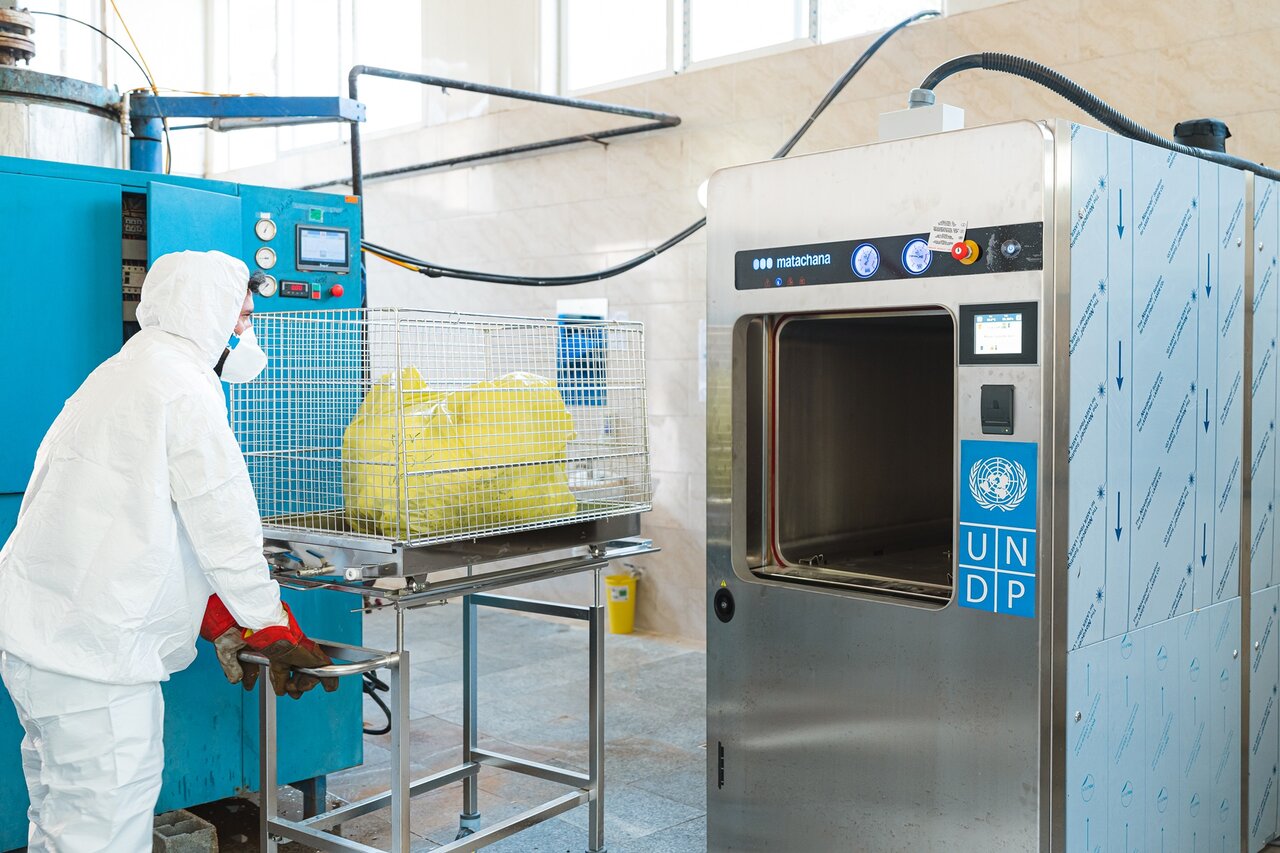UNDP provides Iran with autoclaves for medical waste management

TEHRAN - In a significant move to strengthen Iran’s national healthcare waste management capabilities, the United Nations Development Programme has installed seven autoclaves in five provinces to safely manage the medical waste in the country.
The recent acquisition of high-tech autoclaves has marked a significant step forward. These advanced machines, capable of using high-pressure steam to sterilize and shred medical waste, were introduced amidst the soaring demand for safe waste disposal methods heightened by the COVID-19 pandemic.
At that time, traditional chemical-based methods started to phase out in favor of more sustainable, effective technologies. According to the national health protocols, a staggering number of 120 autoclaves were deemed necessary to safely manage the medical waste in the country.
To date, with the support from UNDP as the Principal Recipient of the Global Fund grant, seven autoclaves have been acquired. The autoclaves were strategically installed across the country in hospitals in Fars, East Azarbaijan, Kordestan, Khuzestan, and Tehran provinces. These facilities were chosen to ensure a broad geographical distribution benefiting both rural and urban populations.
Partnerships have been vital in this endeavor. A collaborative network including the Ministry of Health and Medical Education (MoHME) and several top universities including Shahid Beheshti in Tehran, as well as Ahvaz, Kordestan, Shiraz, and Tabriz Universities, has been integral to ensuring due acquisition accompanied by adequate training and support, guaranteeing sustainable use of the autoclaves. As the next steps, detailed guides on the operation and maintenance of these machines will be distributed ensuring long-term and successful utilization.
The result can be transformative. By implementing these advanced machines, the national health system can significantly enhance its capacity to manage medical waste. This development helps to control the spread of infectious diseases, especially critical during pandemic surges, and aligns with international environmental standards, marking a leap toward more sustainable healthcare practices.
Leave a Comment